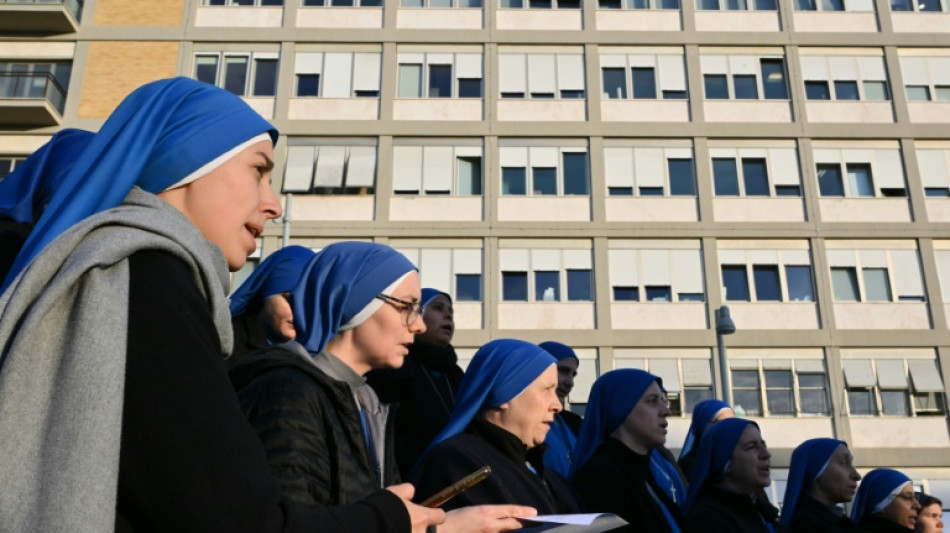

Pope Francis, in critical condition, had quiet night: Vatican
Pope Francis had a quiet night in hospital, the Vatican said Sunday, the morning after revealing the 88-year-old was in a "critical" condition.
The Holy See had late Saturday reported the alarming news that the pope, who in hospital since February 14, had suffered a prolonged respiratory attack and required blood transfusions.
"The night passed peacefully, the pope rested," the Holy See said in a short update on Sunday morning.
The Argentine pontiff, head of the Catholic Church since 2013, was initially admitted to Rome's Gemelli hospital with bronchitis, but it developed into double pneumonia.
"The Holy Father's condition continues to be critical, therefore, as explained (Friday), the pope is not out of danger," the Vatican said in a regular medical bulletin on Saturday evening.
"At the moment the prognosis is reserved," it said.
Francis continues to be alert and "spent the day in an armchair even if he was suffering more than" the day before, the Vatican said.
It said he had on Saturday morning suffered a "prolonged asthmatic respiratory crisis, which also required the application of high-flow oxygen".
Daily blood tests also "showed thrombocytopenia, associated with anaemia, which required the administration of blood transfusions", it added.
Thrombocytopenia is a condition that occurs when the platelet count in someone's blood is too low, which can cause trouble stopping bleeding -- and can be life threatening.
Blood or platelet transfusions, delivered via an intravenous (IV) line into a blood vessel, are given to people who are either bleeding heavily or at very high risk of bleeding, according to the US National Institutes of Health (NIH).
"The pope gets worse," headlined Italy's Corriere della Sera newspaper on Sunday morning, while La Repubblica described it as the "darkest day" at the Vatican.
"The situation is becoming more worrying," Fabrizio Pregliasco, a leading Italian virologist, told La Stampa daily, adding that "the next few hours and days will be crucial".
- Prayers for the pope -
The Vatican had already confirmed Francis would not deliver his usual weekly Angelus prayer on Sunday, saying the text would be published, as it was last weekend.
The pontiff has delivered the prayer in the past from the balcony of the Gemelli, where he is staying in a special papal suite on the 10th floor.
A group of nuns and priests from around the world gathered Saturday outside the hospital entrance to pray for the pope.
They also sang as they stood around the statue of former pope John Paul II, where well-wishers have left candles bearing Francis's picture.
"We are praying today for the Holy Father, Pope Francis, and our hope is that he will recover well in the Grace of God," Brazilian priest Don Wellison told AFP.
Francis has said the papacy is a job for life, but has also left the door open to resigning like his predecessor Benedict XVI.
The German theologian in 2013 became the first pope since the Middle Ages to voluntarily step down, citing his ailing physical and mental health.
Francis had repeatedly said it was not yet the time to quit -- but his illness has raised fresh questions about his ability lead the world's almost 1.4 billion Catholics.
The pope maintains a punishing work schedule, and in September made a 12-day tour to the Asia-Pacific.
But he has suffered increasing health issues, from colon surgery in July 2021 to a hernia operation in 2023.
He is also overweight and has constant hip and knee pain, which force him to use a wheelchair most of the time.
T.Murphy--MP



